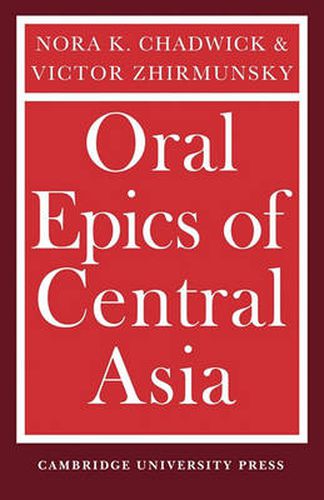Readings Newsletter
Become a Readings Member to make your shopping experience even easier.
Sign in or sign up for free!
You’re not far away from qualifying for FREE standard shipping within Australia
You’ve qualified for FREE standard shipping within Australia
The cart is loading…






Originally published in 1969, this book consists of a revised version of Dr Chadwick’s section on the oral literature of the Turkic peoples in The Growth of Literature with supplementary material on the results of research in the Soviet Union by Professor Victor Zhirmunsky. This literature is of the greatest interest and variety, and not excessively ‘strange’ to readers of European oral literature. It was produced by nomadic peoples with well-developed traditions of narrative heroic poetry. Dr Chadwick paraphrases and analyses the more important epics; and Professor Zhirmunsky adds a study on epic songs and their singers on the processes of oral transmission. This is a fascinating study that will be of particular interest to scholars of comparative literature and of the origins of literature generally; but it should also be read by anthropologists and scholars of folklore.
$9.00 standard shipping within Australia
FREE standard shipping within Australia for orders over $100.00
Express & International shipping calculated at checkout
Originally published in 1969, this book consists of a revised version of Dr Chadwick’s section on the oral literature of the Turkic peoples in The Growth of Literature with supplementary material on the results of research in the Soviet Union by Professor Victor Zhirmunsky. This literature is of the greatest interest and variety, and not excessively ‘strange’ to readers of European oral literature. It was produced by nomadic peoples with well-developed traditions of narrative heroic poetry. Dr Chadwick paraphrases and analyses the more important epics; and Professor Zhirmunsky adds a study on epic songs and their singers on the processes of oral transmission. This is a fascinating study that will be of particular interest to scholars of comparative literature and of the origins of literature generally; but it should also be read by anthropologists and scholars of folklore.